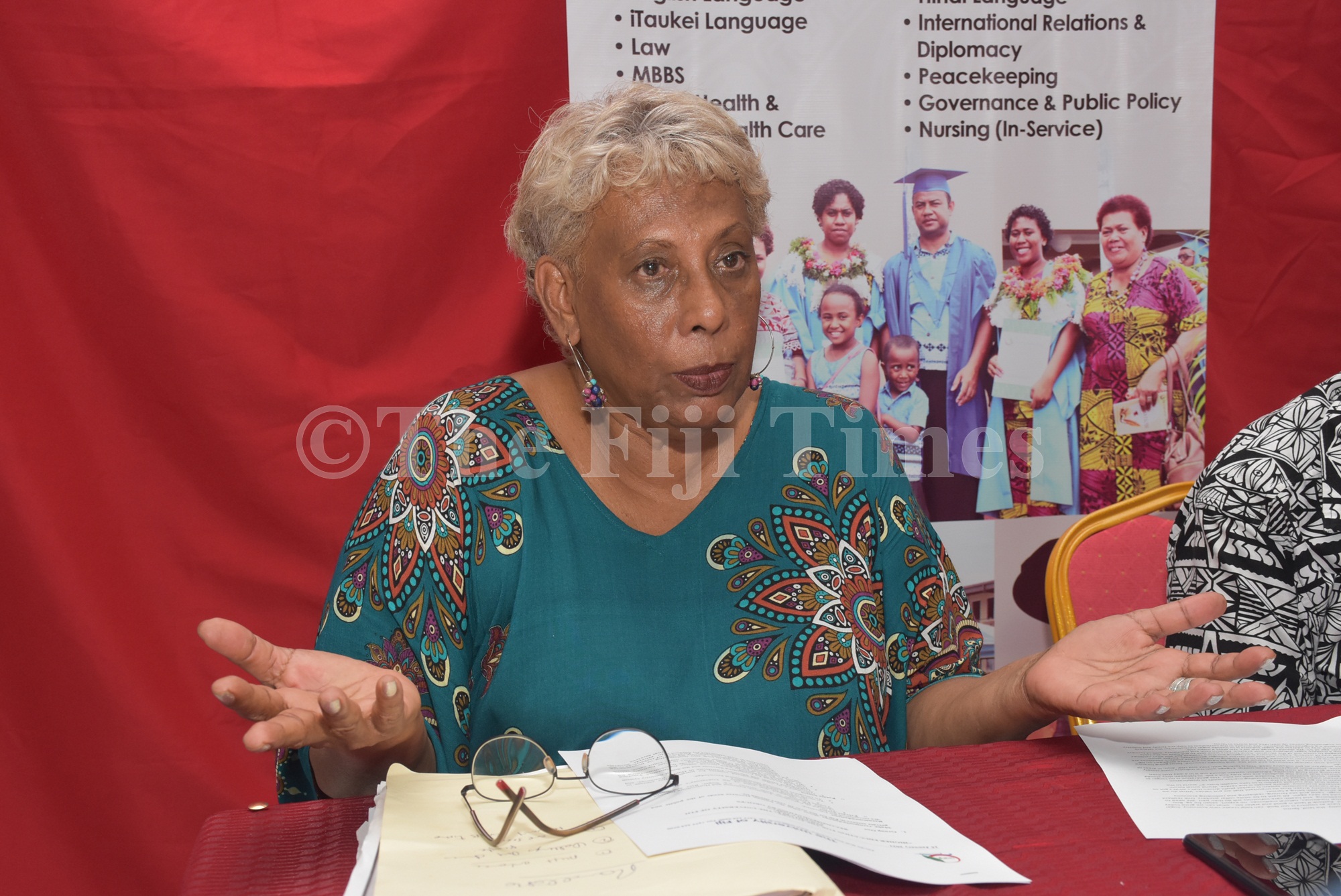The participants of the University of Fiji second roundtable drafted 10 resolutions on the topic ‘Education for Economic Growth: Remodelling Fiji’s National Development Plan post-Covid-19’ last Friday.
UniFiji Acting Vice Chancellor Professor Shaista Shameem confirmed this in a statement saying the resolutions pointed to an alternative economic development paradigm, which was premised on sustainable new industries, education to facilitate investments by local producers and for local consumption as well as to diversify export in niche areas, especially in medicinal herbal products for example medicinal cannabinoids, and in spices and coffee, as well as other niche areas in demand in the world post Covid-19 reality.
She said the roundtable participants said it was apparent from the Reserve Bank economic forecast and the concerns of key NGOs that the people of Fiji faced dire economic consequences not only due to Covid-19 but also because of the global downturn prior to the pandemic.
She said according to the participants, Fiji’s growing debt could be mitigated by concentration on alternative agricultural products that were in demand internationally such as medicinal herbs, coffee and spices.
“For example, coffee was a high-end product that could be grown sustainably in Fiji and was considered now to be second to oil in the international demand market,” she said.
The roundtable participants were concerned about monoculture products that depleted the soil and the environment.
They wanted to consider education for a different type of economic focus for the nation.
The National Development Plan of Fiji to be revised with the following principles:
1. Promote people and earth-centred efficient production and development instead of production solely for market-driven monetary value;
2. Emphasise the importance of human rights and values in education and investment proposals as opposed to market demand;
3. Ensure the importance of a holistic and comprehensive education at all stages of sustainable national economic development;
4. Promote an innovative education curriculum that adapts technologies for local situations and practices;
5. Pursue new markets for local produce and products;
6. Facilitate innovative and diversified agricultural practices and products;
7. Invest in education, health and welfare for social protection;
8. Government to regulate all investment in Fiji in favour of constitutional provisions on protection of the environment and the local population;
9. Form a nexus among Government, higher educational institutions and economic stakeholders for generation, assimilation, and dissemination of knowledge and skills for effective, holistic and sustainable national development;
10. Redefine Fiji’s place in the world as a leader in forward-looking development strategies.




